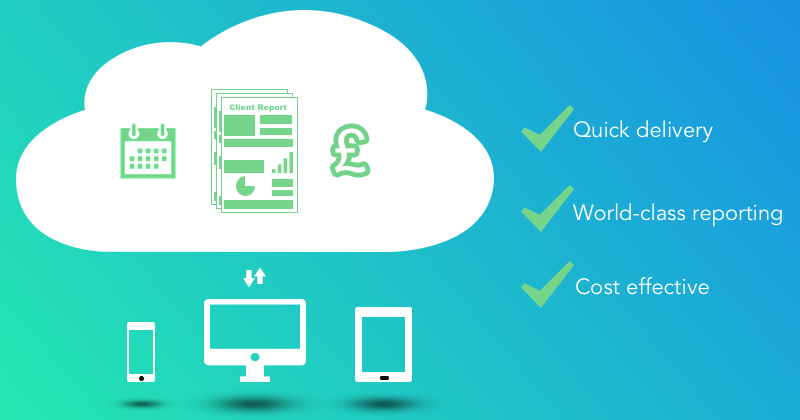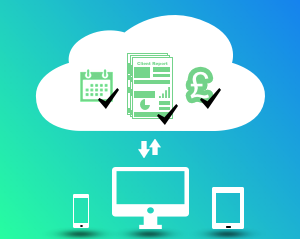Firstly, what is cloud reporting?
Cloud reporting is Software as a Service based reporting, which can be defined as the capability provided to the consumer to use the provider’s applications running on a cloud infrastructure. The applications are accessible from various client devices through an interface such as a web browser. The consumer does not manage or control the underlying cloud infrastructure including network, servers, operating systems or storage.
With cloud reporting you simply login to the cloud based service and the latest version of the software is always available to you, without you having to keep on updating your device to the latest software version.

The issues with traditional reporting systems:
Maintenance: The traditional in-house reporting system requires regular maintenance and updates to ensure the hardware and software are up to date. This can require quite a significant amount of time and effort to undertake, and detracts from the core business of managing investments and servicing clients.
Cost: The cost of maintaining in-house systems is typically significantly higher than a cloud model. The costs of the cloud are variable and are based on use, whereas the internal costs are typically fixed, however much or little the system is being used.
Backups and resilience are a key priority for any core system. Microsoft Azure provide a cloud service and publish availability figures of 99.9%. This high availability is achieved via a variety of measures, that mean that the system and the data are available and up to date. With some traditional backup processes, data may be lost and work would need to be repeated to get from the latest backup to the up to date position.
Cloud security is world class
In the event of a disaster where business continuity is key, being in the cloud is a great benefit. All of the reporting systems and data is safely and securely held off site and easily accessible via an internet enabled device. So in the event of a disaster, users can work from home, or another building, without the usual expense and hassle of maintaining spare/duplicate buildings/desks and systems.
Cloud suppliers and cloud based software companies ensure that the security and privacy of data within the cloud is secure and solid.
Benefits of cloud reporting:
Our cloud reporting is called Reporting as a Service. With this system the complete end to end reporting process is provided online, from data ingestion, data validation/checking, report scheduling, through report production to report storage and automated report dispatch. The system comes with a full suite of user dashboards to manage and control the entire client reporting process. There is nothing to install in your company’s infrastructure, the entire system is securely installed and kept up to date in the Microsoft Azure cloud. Also, with our Reporting as a Service model, the data is stored in the cloud, so the latest and most up to date information can be displayed and provided to you.
Our cloud reporting solution has fixed one off set-up costs and once live, you only pay for each client report produced.
All the backups, the system maintenance and the software updates are undertaken centrally and are done for you.
The cloud allows for flexible scale and processing power. Whether you are wanting to produce 5 reports or 20,000 reports a month, we can ensure sufficient processing power is available to meet your needs. And when it’s not required we can scale it back to save money and resources.
Typically, we on-board a customer to the service in 3-7 weeks, which is much shorter than a traditional client reporting project. This is the time taken to configure the cloud based system to accept and check your data, add your users, build and configure the reporting templates to produce reports to your precise content, layout and branding and to add your recipients for the automated distribution of the completed reports.
Cloud reporting – represents the future model for client reporting and fund reporting: generate operational efficiency, strengthen your resilience, improve your client reporting and reduce your costs.
Andrew Sherlock
Opus Nebula

